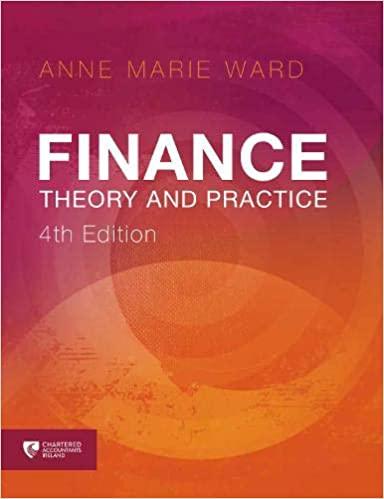Question
A company is planning to move to a larger office and is trying to decide if the new office should be owned or leased. Cash
A company is planning to move to a larger office and is trying to decide if the new office should be owned or leased. Cash flows for owning versus leasing are estimated below. Assume that the cash flows from operations will remain level over a 10 year holding period. If purchased, the company will invest $385,000 in equity and finance the remainder with an interest-only loan that has a balloon payment due in year 10. The after-tax cash flow from sale of the property at the end of year 10 is expected to be $750,000.
a. What is the incremental rate of return on equity to the company, if the property is owned instead of leased?
b. How should the firm decide based on your answer to part (a) and any other necessary information?
| Own | Lease | |
| Sales | $920,000 | $920,000 |
| Less: Cost of goods sold | $460,000 | $460,000 |
| Gross income | $460,000 | $460,000 |
| Operating expenses | ||
| Business | $130,000 | $130,000 |
| Real estate | $55,000 | $55,000 |
| Lease payments | $0 | $110,000 |
| Mortgage interest payment | $90,000 | $0 |
| Tax depreciation | $35,000 | $0 |
| Taxable income | $150,000 | $165,000 |
| Less: Tax | $55,500 | $57,000 |
| Income after-tax | $94,500 | $108,000 |
| Plus: Depreciation | $35,000 | $0 |
| After-tax cash flow | $129,500 | $108,000 |
Step by Step Solution
There are 3 Steps involved in it
Step: 1

Get Instant Access to Expert-Tailored Solutions
See step-by-step solutions with expert insights and AI powered tools for academic success
Step: 2

Step: 3

Ace Your Homework with AI
Get the answers you need in no time with our AI-driven, step-by-step assistance
Get Started


